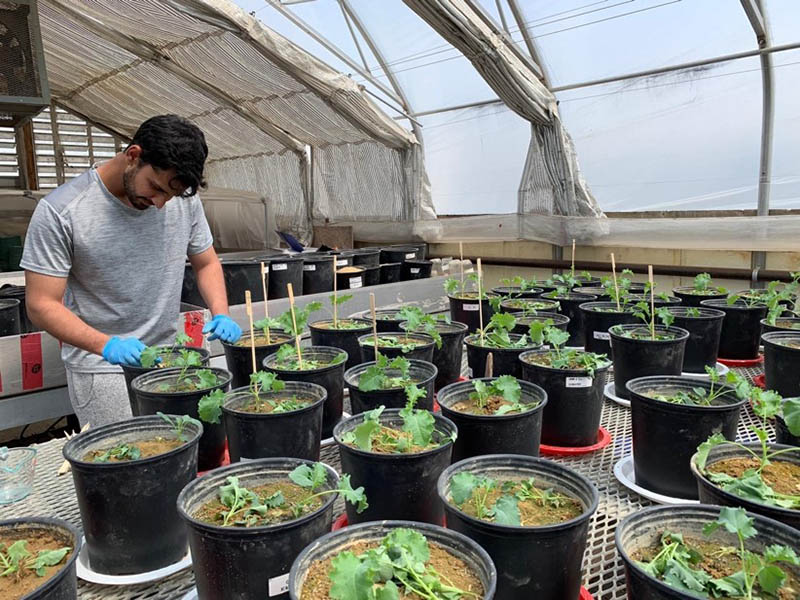Choose a report:
➤

Office of Engagement
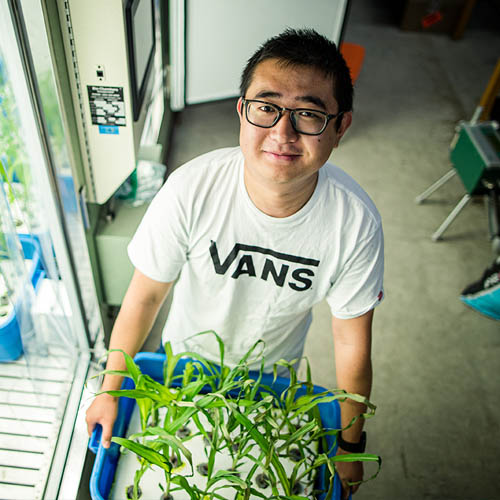
Community Engaged Research
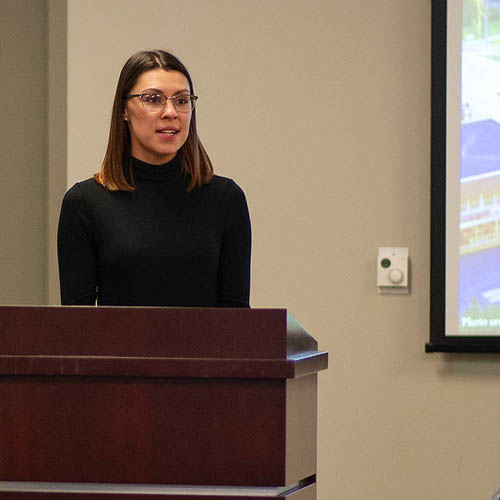
Community Engaged Learning


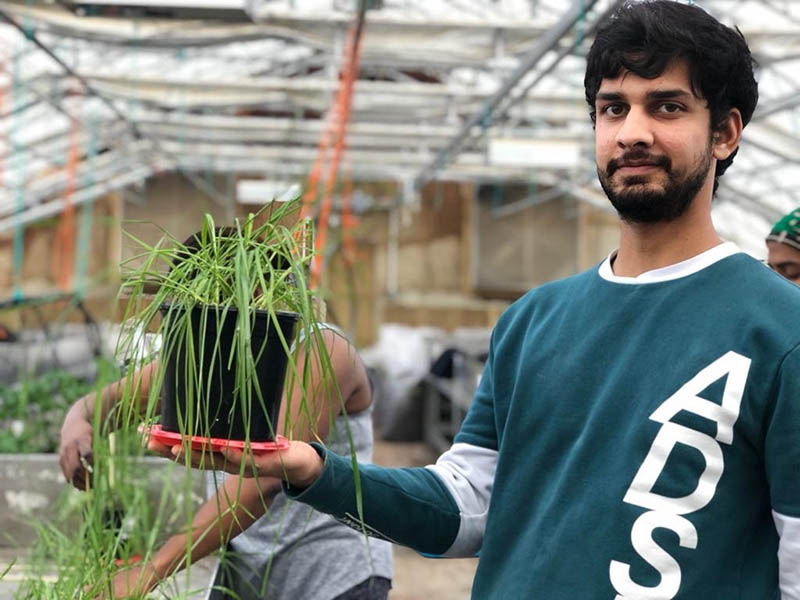
Master of science (BEAS) student Bilal Javed conducted greenhouse experiments using different treatment formulations on ryegrass and kale crops. Submitted photos.
Transforming Newfoundland and Labrador soil from acidic to arable is the aim of the research of Bilal Javed of Faisalabad, Pakistan.
Mr. Javed is pursuing a Master of Science in boreal ecosystem and agriculture science at Grenfell Campus, is working with wastes from Corner Brook Pulp and Paper Ltd. (CBPPL, converting it into a liming and nutrient source for plants and soil.
He is passionate about his work, and reflects that upon graduation, he would consider continuing to work in Newfoundland and Labrador to give back to the province.
"I have been collaborating with the provincial government during my master’s research and would like to continue working with them as they are highly professional and cooperative," said Mr. Bilal, adding that his research is funded by Clean Tech (in partnership with the Department of Fisheries Forestry and Agriculture), Mitacs and Grenfell Campus, Memorial University. "The government has invested considerably in my research – that is why I want to do something for the province and its agriculture sector — it will be the right choice for me."
He added that he is encouraged by the province’s plan to increase NL agriculture production in "The Way Forward."
"I would love to be part of such programs where I will be able to use my professional skills," he said.
The problem Mr. Javed is tackling is rooted in our province’s soil: the province is covered by podzolic — acidic and infertile — soils, limiting the potential of agriculture industry, which currently produces just 10 per cent of its total food requirement.
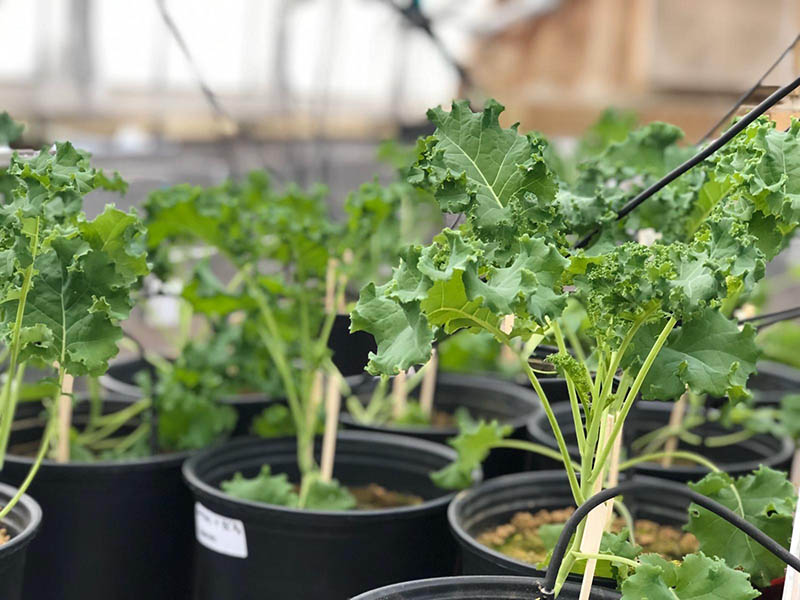
"Low agriculture production in the province forces government to import agriculture commodities," he said. "People are unable to afford expensive vegetables. Solving this agricultural problem would be a breakthrough in the economy of the province."
He said farmers generally use expensive commercial limestone and chemical fertilizers to grow crops, whereas wood ash and paper sludge produced as waste by the Corner Brook paper mill have some of the same nutritional properties and are inexpensive.
According to information he collected from CBPPL, the mill produces about 10,000 tons of wood ash and 5,000 tons of paper mill sludge as waste annually. Mr. Javed is using those waste products, as well as biochar – a carbon-rich soil amendment – to determine their ability to increase soil and crops productivity.
He conducted greenhouse experiments using eight different formulations on ryegrass and kale crops. Combinations included:
"Results of my work showed that these wastes performed just as limestone and produced bigger and heavier plants as compared to those plants that contain only limestone and chemical fertilizer in soil," said Mr. Javed, adding that his greenhouse experiments on kale and ryegrass used various combinations of limestone, wood ash, paper sludge and biochar.
"Treatments had significant effects on soil pH in both crops," said Mr. Javed, adding that the most efficient additions were wood ash alone and wood ash plus sludge. "Results of these greenhouse experiments tell us that paper mill wastes are useful as liming and nutrient source and a cheap alternative input instead of limestone in crop production."
Mr. Javed is in the last year of his program; following the completion of his thesis he aims to publish these results in peer reviewed journals.
"My dream is one day this province will be self-sufficient for its agriculture production and everyone will be able to purchase inexpensive and fresh vegetables," he said. "It will be great if I have a chance to work for this province in the agriculture sector and can make my dream true."
